Check out some interesting Uses of Charcoal in the Garden that can benefit your plants in plenty of ways! Read on!
If you want to develop a healthy garden, taking an in-depth look at the leftovers from your weekend barbeque might be a good idea! Sounds weird? It is not! Have a look at some of the best Uses of Charcoal in the Garden!
Check out our article on Activated Charcoal for plants here!
Uses of Charcoal in the Garden
1. As a Soil Conditioner
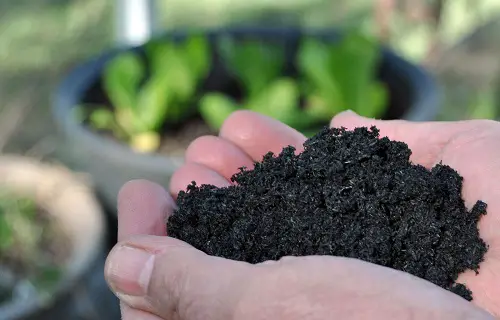
Charcoal is an excellent soil conditioner; thanks to its high potassium content and low cost, it’s a suitable replacement for lime in soil additive mixes.
What’s more, you can also use it for bedding organic insecticides or weedicides as well, as it helps to sweeten mulch and bring it to the optimal pH, especially for roses.
Check out this post for Dried Banana Peel Powder Fertilizer at Home for Any Plant here
2. Neutralizes Plant Poisons
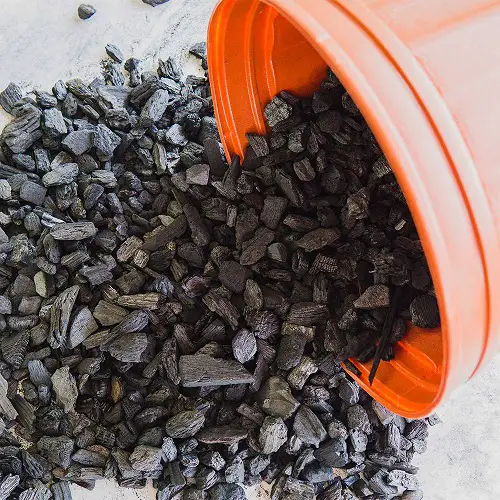
Walnut trees produce a hormone called Juglone, which releases into the surrounding soil by leaves that wither and fall to the ground.
It is toxic to any plant that strives to establish itself in the vicinity of the walnut. When walnut trees fall, the decomposing roots continue to release the poison.
Charcoal can be added to the build-up for complete surface adsorption. You can spread it as a slurry or gently work it into the soil. This is one of the best uses of charcoal in the garden!
Check 7 Amazing Pomegranate Peel Uses in the Garden here
3. Container Filler
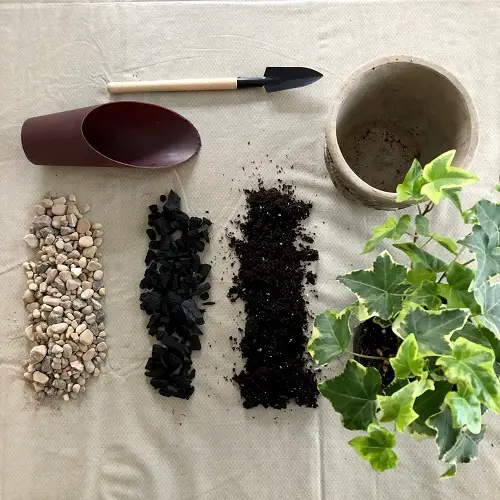
The next time you pick up some rocks for filling the bottom of your pots, consider using natural hardwood charcoal instead. Charcoal is a better option because it’s lighter than gravel and rocks. Hence, its inclusion makes the pots lighter and, consequently, easier to move around.
This is particularly convenient when the weather is unpredictable. You need to move your plants frequently to take advantage of sunlight or to protect them from the frost. What’s more, you can reuse the charcoal when changing the container!
Read about the 21 Baking Soda Uses in the Garden here
4. As a Soil Additive
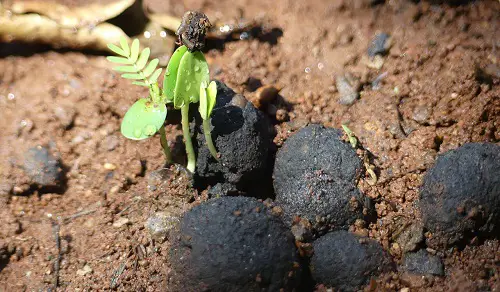
There is a reason why store-bought soil mixes contain charcoal. When included in potting soil, charcoal soaks up the nauseating odors of compost and manure while leaving the nutritional integrity of the mixture intact.
You can even add a few charcoal pellets to your potting mix in case the smell becomes too much to bear.
5. Herbicide Neutralization
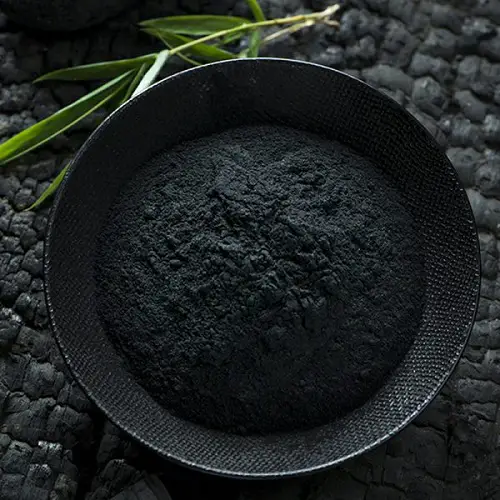
Herbicides, often have a long hang time in the soil. They tend to linger around for quite a few years, even after the target plants have died. This causes an unfavorable growth environment for your future crops.
If you intend to use an area subjected to Isoxaben or Oryzalin Herbicides, add some hardwood charcoal to the soil just before planting.
This will serve a two-fold purpose- diluting the herbicides and precluding the potential growth problems for optimum development of plants.
6. Pesticide Cleanup and Removal
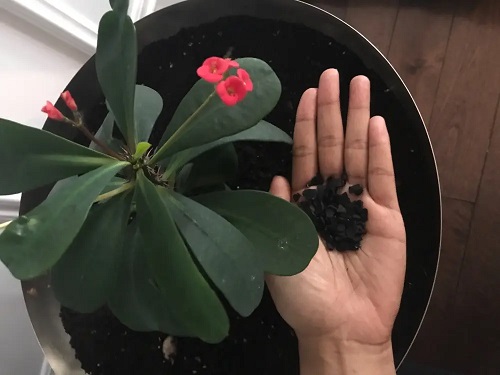
The absorption qualities of activated charcoal, coupled with its non-toxic nature, make it ideal for neutralizing the harmful effect of pesticides.
Scientifically speaking, a mixture of one pound of charcoal mixed with one gallon of water, is enough to treat and clean up pesticide build-up in about 100-150 square feet of soil.
If the affected area is too big to spread manually, consider spraying it all over to remove superficial pesticide treatments.
Do keep in mind that charcoal works only for organic pesticides, not for synthetic ones. This is one of the best uses of charcoal in the garden!
7. Charcoal Mulch
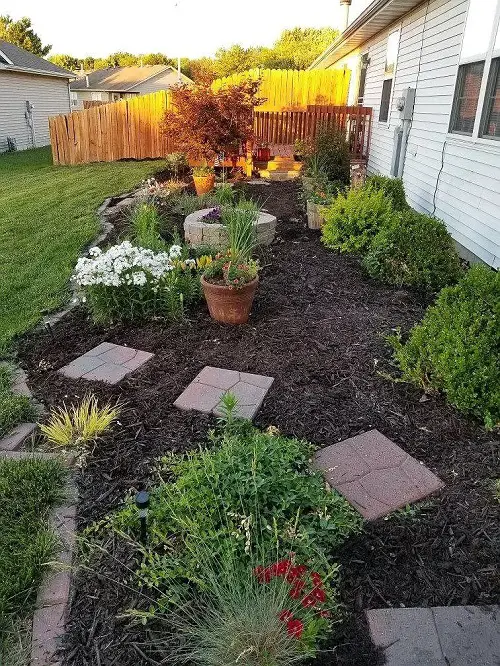
You don’t always need brown or green plant material to mulch. Mulching with black charcoal can be just as effective.
It creates a protective covering over the soil surface while preventing moisture from escaping the soil. This helps to preclude the growth of weed in the process.
Using a layer of charcoal as mulch around light-colored plants is a unique way to create a different look and highlight a freshly done patch in the garden!
8. Anti-Fungal Protection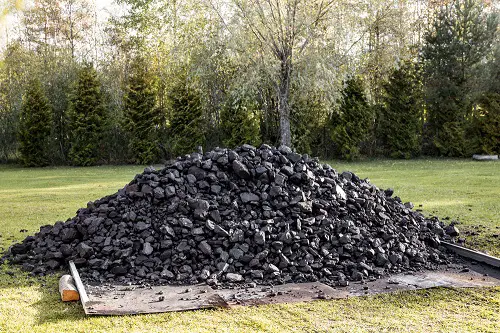
In a research published in Frontiers in Plant Science, it states that adding charcoal to the soil is an effective strategy to manage and reduce fungal infections in plants.
As charcoal is one of the most potent ways to kill the mycotoxins that mold creates, using it in your garden is surely going to keep fungal infection at bay.
9. Organic Insect Killer

If scientific reports are anything to go by, powdered natural charcoal is extremely potent in deterring Tribolium Castenum. It is a beetle with a voracious appetite for grain products like beans, flour, pet food, dried flowers, cereals, pasta, and so on.
Tribolium Castenum and the flour beetles are the worst nightmares of every grocery store owner. Using well-bleached and desiccated charcoal dust can do a neat job of killing these pesky insects without leaving behind any toxic residues!
Charcoal is one of the best, simplest, and cheapest ways to aid to the growth of your garden!
10. Increase the Soil pH
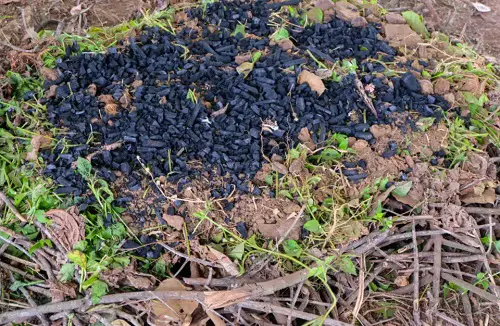
Suppose the soil in your garden is extremely acidic then you can neutralize it by adding 50-100 gm of the charcoal per container, depending on the soil’s pH level.
11. Remove Bad Odor from Compost and Soil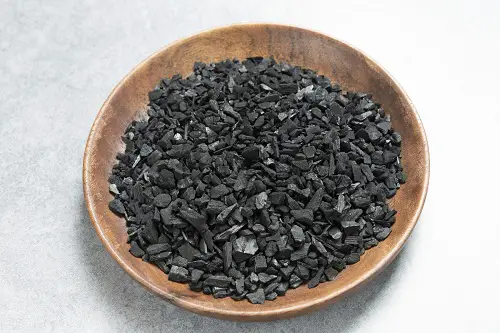
Sprinkle some charcoal powder over the compost to lower the foul odors. You can also use a handful of it in the potting soil to curb down the smell of organic matter, especially in houseplants.



Maybe you should be a bit more specific and detailed in your quick google searches. Horticultural Charcoal. Please gardeners, don’t put chunks of the charcoal from your grill into your plants. Please.
You can do the same with your own garden or farm soil by adding the single vital ingredient of terra preta, charcoal. When used in soil building, charcoal is often referred to as “biochar.”
How about the nematodes on the black pepper can use also?
Thank you for all the details ,this is of tremendous help.
can you use it if you have alkaline soil